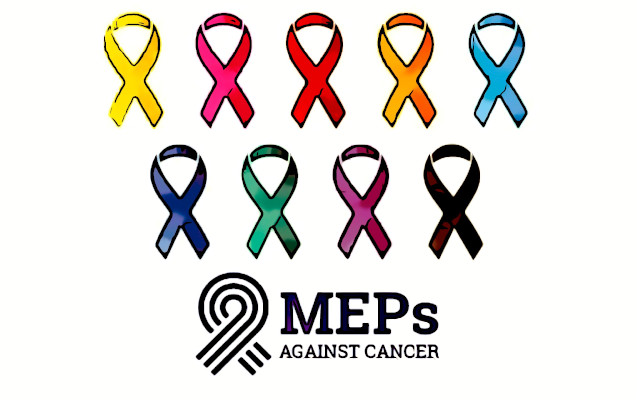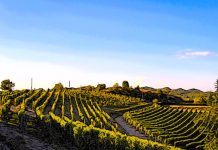Pesticides and other toxic chemicals, alcohol and junk-food are put on the index in the report of the European Parliament’s Special Committee on Cancer in the Beating Cancer Plan (BECA), up for a plenary vote in Strasbourg on 15.2.22. (1)
Civil society organizations–on the occasion of World Cancer Day, 4.2.22–made a heartfelt appeal to MEPs, which we join. So that cancer prevention can be translated into binding rules, without compromising on health. (2)
1) Cancers in Europe, scenario.
1.3 million people-including 6,000 children and adolescents-die each year from cancer in Europe. Where cancer is the leading cause of death from disease in children and the second leading cause of premature mortality, after cardiovascular disease, in adults. Early diagnosis, effective, innovative, and differentiated care and treatment for children are needed, as well as accessible and affordable. And adequate social support, to the more than 12 million survivors and their families.
Prevention is the first tool to invest in, the best of cures. It is estimated that it can almost halve (-40%) the occurrence of cancers in Europe. Therefore, we need to reduce environmental pollution, to which the European Environment Agency (EEA) attributed 250,000 cancer deaths, in 2016. And especially exposure to toxic chemicals and endocrine disruptors, which add the tragedies of developmental delays and neurobehavioral diseases to the harms of cancer.
2) Beating Cancer Plan (BECA)
2.1) Political context
The EU Action Plan ‘On Strengthening Europe in the Fight Against Cancer, Towards a Comprehensive and Coordinated Strategy‘ is presented by the Special Committee on Beating Cancer in an outline of a European Parliament resolution that calls out a wide range of initiatives in its introduction. These include:
–
European Green Deal
, adopted in Brussels on 14.11.19,
– Europe’ s Beating Cancer Plan, released on 3.2.21 by the European Commission, (3)
– Horizon Europe, the EU framework program for research and innovation 2021-2027, (4)
–
Farm to Fork
, an EU strategy presented in Brussels on 5/20/20,
– EU Action Plan ‘Towards Zero Pollution for Air, Water and Soil‘, 12.5.21(COM/2021/400 final),
– ‘Access to medicines and medical devices for a stronger and more resilient EU‘, Council Conclusions 15.6.21. (5)
2.2) Pesticides and toxic chemicals.
Pesticides and toxic chemicals are referred to in the European Parliament’s 20.10.21 resolution on the Farm to Fork strategy regarding the risks of exposure to agrochemicals. As well as in work on:
– ‘carcinogens and mutagens directive‘, now under review with vote in European Parliament EMPL Committee and possible finalization on 14.2.22, (6)
– ‘Healthy environment, healthy lives: how the environment influences health and well-being in Europe‘, European Environment Agency (EEA) report 21/2019,
– EU policy framework 2021-2027 ‘
on health and safety at work.
‘, 20.6.21,
2.3) Alcohol
WHO Europe – in its recommendations on the prevention of alcohol-related diseases (2020)-recalled how it is responsible for about 180,000 cancer diagnoses and 92 premature deaths each year in the European macro-region, first in the world for per capita consumption levels (9.8 liters of pure alcohol/year, 2018 data). And alcohol consumption is directly associated with a higher prevalence of a causal role in several types of cancer. (7)
Epidemiological research on alcohol and cancer in recent years has come to show that ethanol causes irreversible DNA damage, even with low levels of consumption. And the IARC(International Agency for Research on Cancer) has shown how it represents, in France, the second largest risk factor for cancer after tobacco. But consumer awareness of its impact on health is still very low.
3) Areas of action
The report of the Special Committee on Beating Cancer (BECA), established in the European Parliament on 10/27/20, indicates several areas for action. We focus on those pertaining to prevention.
3.1) Cancer prevention in EU policies.
We need to include cancer prevention in every European policy, in light of the continuous evolution of scientific research that needs to be incentivized with various funds, including ‘Science and Policy for a Healthy Future‘ – HBM4EU). We dwell on:
– tobacco. It is by far the leading preventable cause of cancer in the EU, being the cause of 15-20% of cancer cases as well as the leading risk factor for cancer death in Europe (27%, 700 thousand deaths per year), so we need to foster a Tobacco Free Environment for the younger generation.
– alcohol. It is in turn the cause of 10% of all cancer cases in men, 3% in women. In fact, ethanol and acetaldehyde that result from the metabolism of ethanol in alcoholic beverages are classified by IARC(International Agency for Research on Cancer) as carcinogens,
– junk-food
. Excessive portions of ultra-processed foods with unbalanced nutritional profiles are the primary causes of obesity, overweight, and related diseases that among other things increase the risk of developing cancer.
3.2) Alcoholic beverages and food-tasting, labeling and marketing restrictions
The BECA report – authored by a liberal-leaning medical oncologist, Hon. Véronique Trillet-Lenoi – urges the European Commission to take effective action on labeling and marketing restrictions on alcoholic beverages and junk food in the following terms:
– ingredients list, mandatory nutrition statement and warning labels on alcoholic beverages (>1.2% alc. vol.). The digital label can be added but cannot replace the physical label. (8) The EU Alcohol Strategy should be updated and a Zero Alcohol Strategy should be introduced for minors. Therefore, alcohol sponsors should be banned at public and sports events attended predominantly by minors, who should also be protected from alcohol advertisements in the Audiovisual Media Service Directive (EU dir. 2018/1808),
– Mandatory Front-of-Pack Nutrition Labeling (FOPNL) of packaged foods. The BECA Commission reiterates what was already expressed in the plenary meeting on 20.10.21, in the vote on the Farm to Fork strategy. (9) It is necessary to introduce an effective FOLP system, as the NutriScore has already proven to be. Junk food(High in Fats, Sugar and Sodium, HFSS) must then come under strict marketing restrictions including a ban on social media advertising.
4) The support of civil society
Civil society organizations, in their joint letter 4.2.22, urge MEPs to be courageous in affirming the prevalence of public health over the special interests of lobbying industries responsible for cancer and other serious Non-Communicable Diseases (NCDs) that can be drastically reduced by responsible policy.
Every self-regulatory initiative has failed, one among them the
EU Platform for (In-)Action on Diet, Physical Activity and Health
in which many had believed, at the dawn of the new Millennium. And predatory marketing to children, already denounced by Unicef (2019), must be stopped with exemplary sanctions against its principals (10,11).
People over Profit
, will it ever be possible?
Dario Dongo
Notes
(1) Special Committee on Beating Cancer. Report on strengthening Europe in the fight against cancer – towards a comprehensive and coordinated strategy (2020/2267(INI)). Speaker Hon. Véronique Trillet-Lenoi (France, La Républic En Marche!, Renew Europe Group). https://www.europarl.europa.eu/doceo/document/A-9-2022-0001_EN.html
(2) Please protect the strength of BECA’s cross party consensus on cancer prevention during the plenary vote on the BECA report. Joint letter. 4.2.22, https://www.safefoodadvocacy.eu/wp-content/uploads/2022/02/Joint-letter-to-MEPs_BECA-report-04.02.2022-1.pdf
(3) European Commission. Europe’s Beating Cancer Plan. European plan to fight cancer (COM/2021/44 final). 3.2.21, https://bit.ly/3goxshp
(4) Reg. EU 2021/695, establishing the Horizon Europe Framework Programme for Research and Innovation and laying down its rules for participation and dissemination. https://bit.ly/3B2EVvO
(5) Council Conclusions on Access to medicines and medical devices for a Stronger and Resilient EU (2021/C 269 I/02). https://bit.ly/3rv1pTc
(6) Directive 2004/37/EC, on the protection of workers from the risks related to exposure to carcinogens or mutagens at work. Updates on https://oeil.secure.europarl.europa.eu/oeil/popups/ficheprocedure.do?reference=2020/0262(COD)&l=en
(7) WHO Regional Office for Europe (2020). Alcohol and cancer in the WHO European Region: an appeal for better prevention. Licence: CC BY-NC-SA 3.0 IGO. https://apps.who.int/iris/bitstream/handle/10665/336595/WHO-EURO-2020-1435-41185-56004-eng.pdf?sequence=1&isAllowed=y
(8) Marta Strinati. Alcoholic beverage labeling, work in progress in Brussels. GIFT(Great Italian Food Trade).
5.10.21, https://www.greatitalianfoodtrade.it/etichette/etichettatura-delle-bevande-alcoliche-lavori-in-corso-a-bruxelles
(9) Dario Dongo. Farm to Fork, Nutri-Score and product reformulation. GIFT(Great Italian Food Trade). 10/25/21, https://www.greatitalianfoodtrade.it/etichette/farm-to-fork-nutri-score-e-riformulazione-dei-prodotti
(10) Dario Dongo, Selena Travaglio. Influencer marketing, what rules? GIFT(Great Italian Food Trade). 7/23/20, https://www.greatitalianfoodtrade.it/consum-attori/influencer-marketing-quali-regole
(11) Dario Dongo. Influencer marketing, our report to the Antitrust. GIFT(Great Italian Food Trade). 7/25/20, https://www.greatitalianfoodtrade.it/consum-attori/influencer-marketing-la-nostra-segnalazione-all-antitrust
Dario Dongo, lawyer and journalist, PhD in international food law, founder of WIISE (FARE - GIFT - Food Times) and Égalité.








